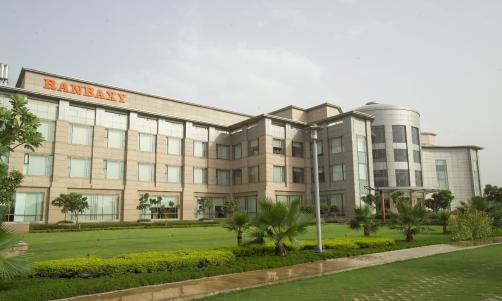
Regulatory woes eclipse Sun Pharma deal
pharmafile | April 10, 2014 | News story | Manufacturing and Production, Sales and Marketing | FDA, India, Ranbaxy, Sun Pharma
The $4 billion merger between Indian generic firms Sun Pharma and Ranbaxy has been soured by reports that the deal may have been leaked prior to its formal announcement, and its presence in the US could be scaled back over quality concerns.
According to Reuters, India’s market regulator will ask Ranbaxy Laboratories and Sun Pharmaceutical Industries for more information about their planned merger and seek trading data from stock exchanges.
This comes after shares in Ranbaxy surged in the run-up to the deal, a senior source at the regulator told the newswire service.
Ranbaxy shares jumped 24% while trading volume tripled in the three sessions ahead of Monday’s announcement that Sun Pharma would buy it, making the two combined firms the fifth biggest speciality pharma company in the world, and the largest in India.
A source at the Securities and Exchange Board of India (SEBI), who declined to be identified because he is not authorised to speak with the media on the matter, tells Reuters: “We have received multiple complaints. We will ask stock exchanges on details of buy and sell trades in both Ranbaxy and Sun shares.”
The official added that SEBI would also ask for ‘additional disclosures’ from the two drug makers.
Rebrand on the cards?
Meanwhile, Sun is also said to begin phasing out sales of generic drugs branded as Ranbaxy Laboratories Ltd products in the US, sources with direct knowledge of the matter have told Reuters.
Ranbaxy drugs sold in the market will be gradually rebranded as ‘Sun Pharma’ treatments. The brand is likely to continue to be present in other markets, the sources said.
The reason? Because the Ranbaxy name has become toxic in the US after the FDA imposed import bans on drugs manufactured at a number of its facilities.
In February, the regulator’s commissioner Margaret Hamburg visited India in a quest to shore up quality from all manufacturers there. Overall, the FDA has put more than 30 Indian manufacturing units on its ‘import alert’ list, something that can stop products from entering the US.
But the FDA’s crosshairs have been firmly squared on Ranbaxy, which has been beset by manufacturing woes for the past year, including two recalls over atorvastatin, the generic form of Pfizer’s once big-selling statin Lipitor.
And in January, the FDA prohibited the firm from manufacturing and distributing active pharmaceutical ingredients (APIs) from Toansa, Punjab, for FDA-regulated drug products over safety concerns.
The company’s woes have rumbled on over the last couple of years, with six Ranbaxy facilities now found to have problems meeting current good manufacturing practice standards – and at four of these the issues have been serious enough for the FDA to take direct enforcement action.
The FDA consent decree issues earlier this year also encompasses the Ranbaxy facilities in Paonta Sahib, Dewas and Mohali.
Last May, the company was also forced by the US government to pay $500 million in fines and penalties to settle criminal and civil charges related to charges of selling adulterated drugs.
India provides around 40% of all generic and OTC drugs in the US, which accounts for around 80% of all medicines in the country, making it a huge market for generic firms selling into it.
Ben Adams
Related Content

MRM Health’s ulcerative colitis treatment receives FDA Investigational New Drug clearance
Microbial Resource Management (MRM) Health has announced that its lead programme, MH002, has received Investigational …

Complement Therapeutics’ geographic atrophy treatment receives FDA Fast Track designation
Complement Therapeutics has announced that CTx001, its gene therapy treatment for geographic atrophy (GA) secondary …

Johnson & Johnson submits robotic surgical system for De Novo classification
Johnson & Johnson has announced the submission of its Ottava Robotic Surgical System for De …





